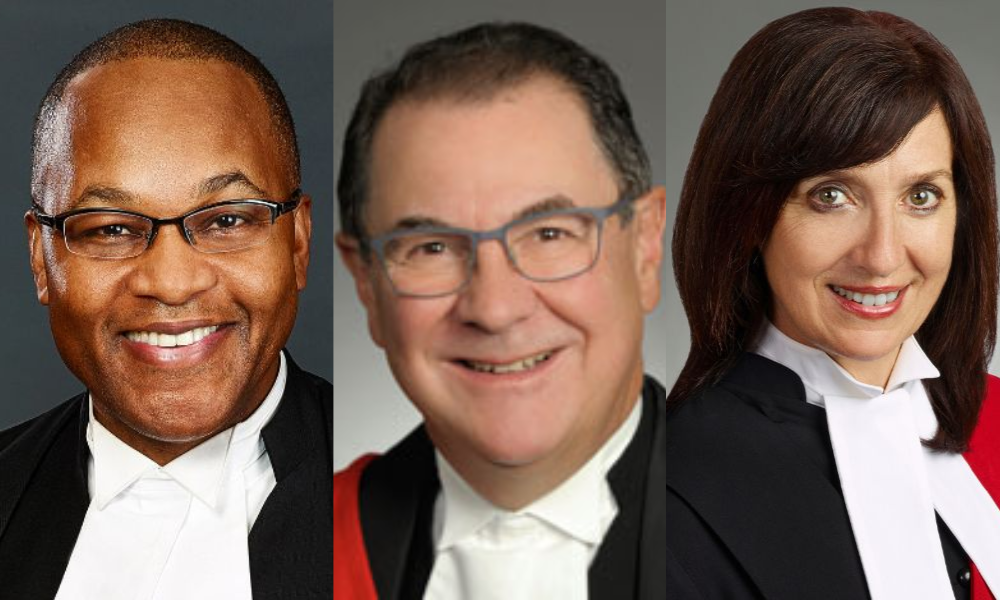
Doug Ford is facing backlash after comments that judges should be elected, form political parties

Ontario’s three chief justices issued a statement affirming the importance of judicial independence late Wednesday, hours after Premier Doug Ford suggested that Ontario does “what the US does” and start electing rather than appointing judges.
“The principle of judicial independence is generally recognized as having two dimensions,” reads the statement by Ontario Court of Appeal Chief Justice Michael Tulloch, Ontario Superior Court Chief Justice Geoffrey Morawetz, and Ontario Court of Justice Chief Justice Sharon Nicklas.
“The first applies to individual judicial officials and embodies the fundamental principle that a judicial official must be, and must be seen to be, free to decide each case on its own merits, without interference or influence of any kind from any source, including politicians.
“The second applies to the court as an institution,” the justices added. “It requires the court, as a whole to be, and appear to be independent of the legislative and executive branches of government.”
At a press conference at Peel Regional Police headquarters earlier on Wednesday, Ford criticized the federal bail system, stating that while he was a “strong believer in our judicial system,” it was “absolutely ridiculous how these judges keep letting people out over and over and over again.”
Ford described the judicial system as “broken,” adding, “There’s a lot of terrible, terrible bleeding heart judges out there.”
He accused judges of ruling based on ideology, referencing a temporary injunction that an Ontario court issued on Tuesday, stopping the provincial government from ripping out multiple bike lanes in Toronto. Ford then said that judges should form their own political party and suggested that judges should be elected rather than appointed, as they are in some jurisdictions in the US, so they can be held accountable.
Ford was at the press conference to announce proposed justice legislation, whose measures include changes to Ontario’s bail system. Last year, he drew criticism for saying that the Progressive Conservatives were elected to appoint “like-minded people” as judges.
Speaking to Law Times on Thursday, former Federation of Ontario Law Associations chair Douglas Judson said the organization’s statement on Ford’s comments last year still applies.
Ford’s comments are “a revisiting of this idea that the court ought to be politicized because they’re not letting the government do what it wants,” Judson says. “But the reality is that’s not the function of the court. The court’s function is to ensure that persons who find themselves subject to criminal charges or in other types of disputes can have their matters heard before a fair and impartial decision-maker to uphold the rule of law in our democratic society.”
Ford’s comments reflect “a fundamental misunderstanding and a juvenile misunderstanding of how our institutions are structured to hold each other accountable in our democracy,” Judson adds.
In a statement issued Wednesday, Ontario Bar Association President Kathryn Manning said, “A society in which politics plays a role in conviction and prosecution is not a safe one, as we have seen in the US. The premier has built a reputation for protecting Ontario from the dangers of the Trump administration. Attempting to politicize the judiciary is one such danger – we need to protect against it.”
Manning added that the OBA does not expect the proposed justice legislation “to be a drastic change to judicial appointments and [we] will work with him to ensure the safeguards of the rule of law and a safe society are protected.”
At an unrelated press conference on Thursday, Attorney General Doug Downey said that while he was sympathetic to Ford’s “frustration,” the province is not currently pursuing the idea of electing judges.